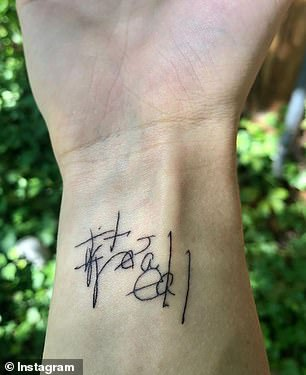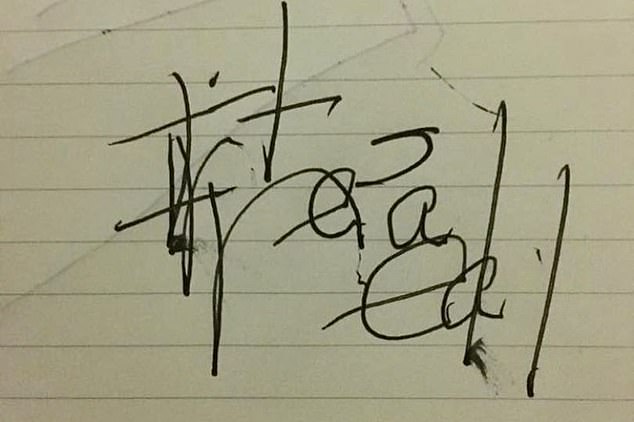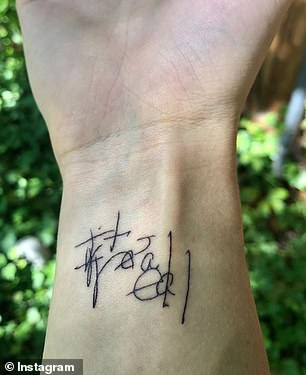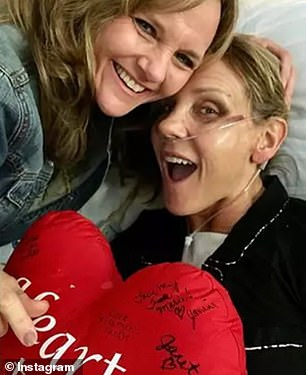
After narrowly escaping death, Tina Hines awoke and scribbled a terrifying note for her loved ones.
Last February, Tina and her husband Brian were looking forward to a trek close to their home in Phoenix, Arizona.

Tina had always been healthy, but just as they were about to set out, she passed out.
According to Brian, he knelt down next to his wife, who had gone a dark purple, and began performing CPR on her.
The mother-of-four was briefly brought back to life, but Brian had to do it again before paramedics could take over.
Tina was resuscitated a total of six times before she awoke at the hospital, and the team kept losing her during the terrifying ambulance ride and during treatment.
Tina and her family told AZfamily.com that she was essentially dead for a total of 27 minutes.

She was intubated and unable to talk while at the hospital, but as soon as Tina woke up, she motioned for a pen so she could scribble her mysterious message, which she claims relates to heaven.
Tina Hines wrote “it’s real” in practically unintelligible lettering, referring to the glimpse of heaven she claimed to have had during the 27 minutes she spent “dead” after suffering a severe cardiac arrest.


Tina told AZfamily.com, “It was so real, the colors were so vibrant.”
She recalled seeing a person standing in front of dark gates with a bright yellow light burning behind them, which she believes to be Jesus.


Tina merely ‘nodded’ upward when her loved ones inquired about what was genuine while she was still being intubated.
Tina is grateful to be alive and able to share her inspiring tale.

Outside of a hospital setting, almost 90% of patients who experience abrupt cardiac arrest pass away.
However, Tina’s husband’s CPR probably meant the difference between life and death.

Sudden cardiac arrest kills nearly 90% of patients outside hospitals. For Tina, survival came down to her husband’s quick action—his CPR likely saved her life. Inspired, her niece Madie had Tina’s powerful message tattooed on her wrist as a daily reminder of resilience and hope.

When bystanders perform CPR, survival rates jump from about 10% to over 45%. Yet women remain 27% less likely to receive CPR from strangers, a troubling statistic given how unpredictable cardiac arrest is. Even Tina, who had no history of heart problems, collapsed from an unexpected electrical malfunction that stopped her heart instantly. Each year, more than 356,000 Americans face this terrifying condition.
Tina recovered after a brief hospital stay, though she remembers nothing of her near-death experience. Studies show most patients have no recollection, but 10–20% report vivid sensory visions. Scientists are exploring what happens in the brain when the heart stops. Research on rats revealed a surge of synchronized brain activity moments before death—almost as if the brain becomes “hyperactive.”
This may explain the mystical visions many describe. While science searches for answers, Tina’s story remains one of survival, gratitude, and second chances.
But definitive scientific proof of that notion is still a long way off.
The lettering may have been difficult for Tina and her family to understand, but they think t